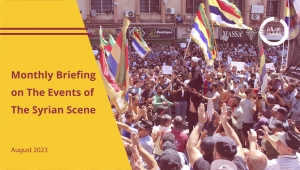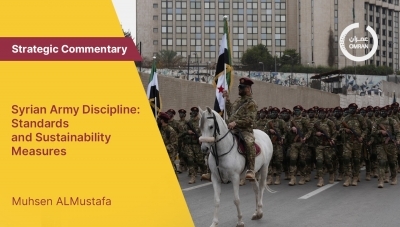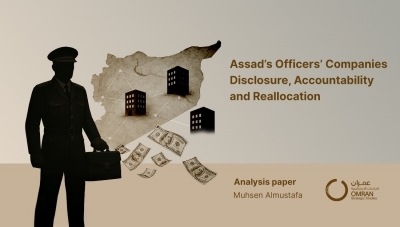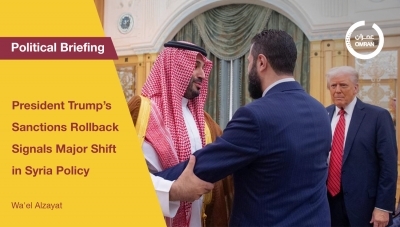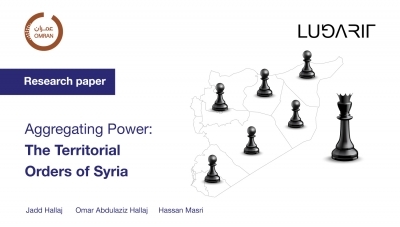Media Appearance
Monthly Briefing on The Events of The Syrian Scene - August 2023
Executive Summary
This report provides an overview of the key events in Syria during the month of August 2023, focusing on political, security, and economic developments. It examines the developments at different levels.
- Security and Military Sector: In Deir Ezzor, the security situation has deteriorated significantly following the disbandment of the “Deir Ezzor Military Council” and the subsequent arrest of its leaders by the Syrian Democratic Forces “SDF”. This has sparked intense conflicts between the SDF and local Arab tribes, who are calling for the creation of a genuine local government that truly represents the region's inhabitants.
- Political Sector: Civilian demonstrations escalated in the province of As-Suwayda, with people asking for political changes based on a specific Security Council Resolution /2254/ after the regime's failure to achieve popular demands for twelve years.
- Economic Sector: The Regime's efforts to alleviate the severe economic crisis by raising the salaries of workers have proven to be ineffective. Despite the increase in wages, the cost of essential goods has more than doubled, making the monthly average living cost for a family of five in Syria exceed /10.3/ million Syrian Pounds.
Frustration and Resistance: Emerging from the Regime's Policies
Bashar al-Assad has made the decision to replace the governor of Tartous, “Abdel Halim Khalil”, with the retired Brigadier General “Firas Ahmed al-Hamid”. This move is seen as an effort to quell the growing dissatisfaction among civilians due to bad living conditions in Tartous.
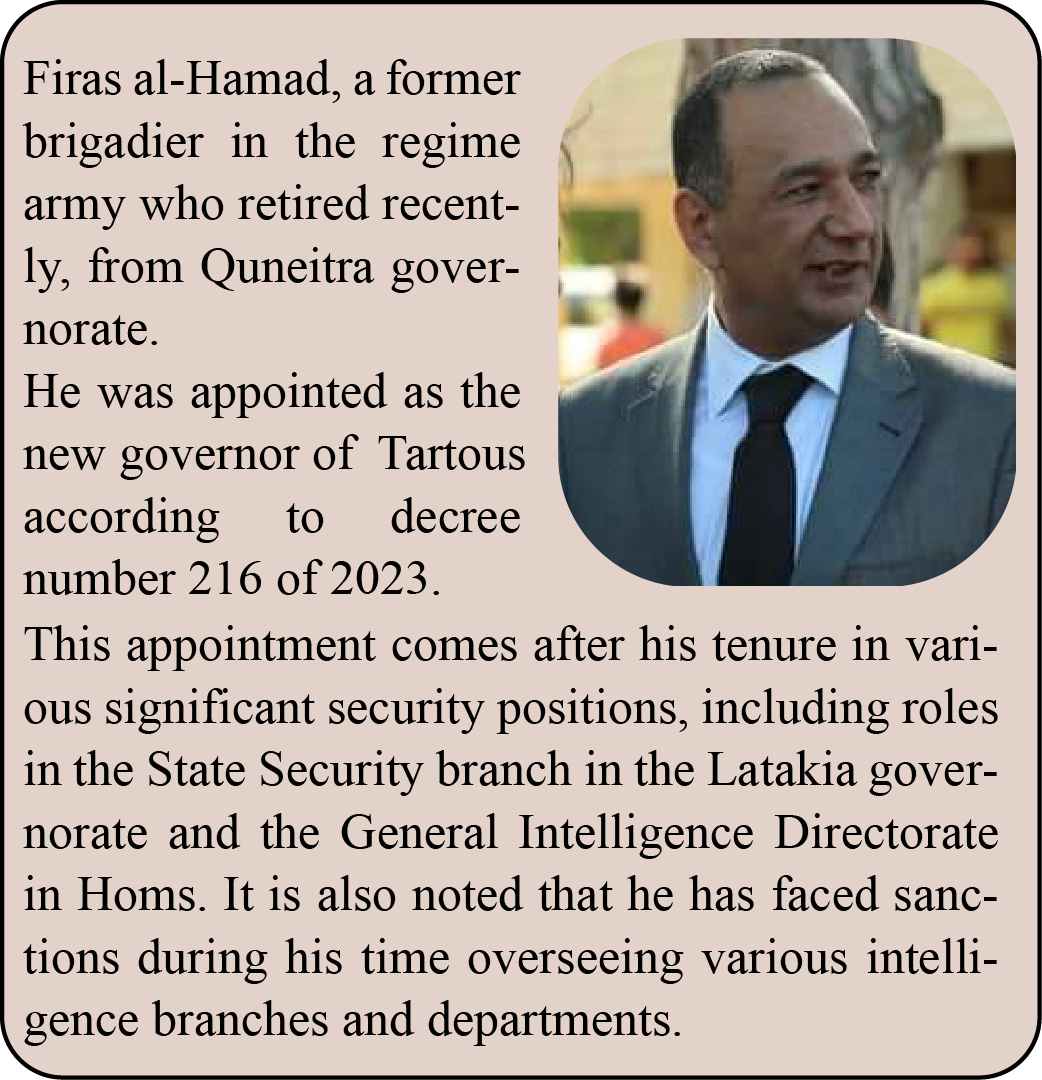
In August 2023, the protests against the poor economic conditions intensified with a higher number of participants in As-Suwayda province. The scope of these protests has significantly expanded, spreading to /48/ distinct areas, a substantial increase from only /3/ areas during previous demonstrations.
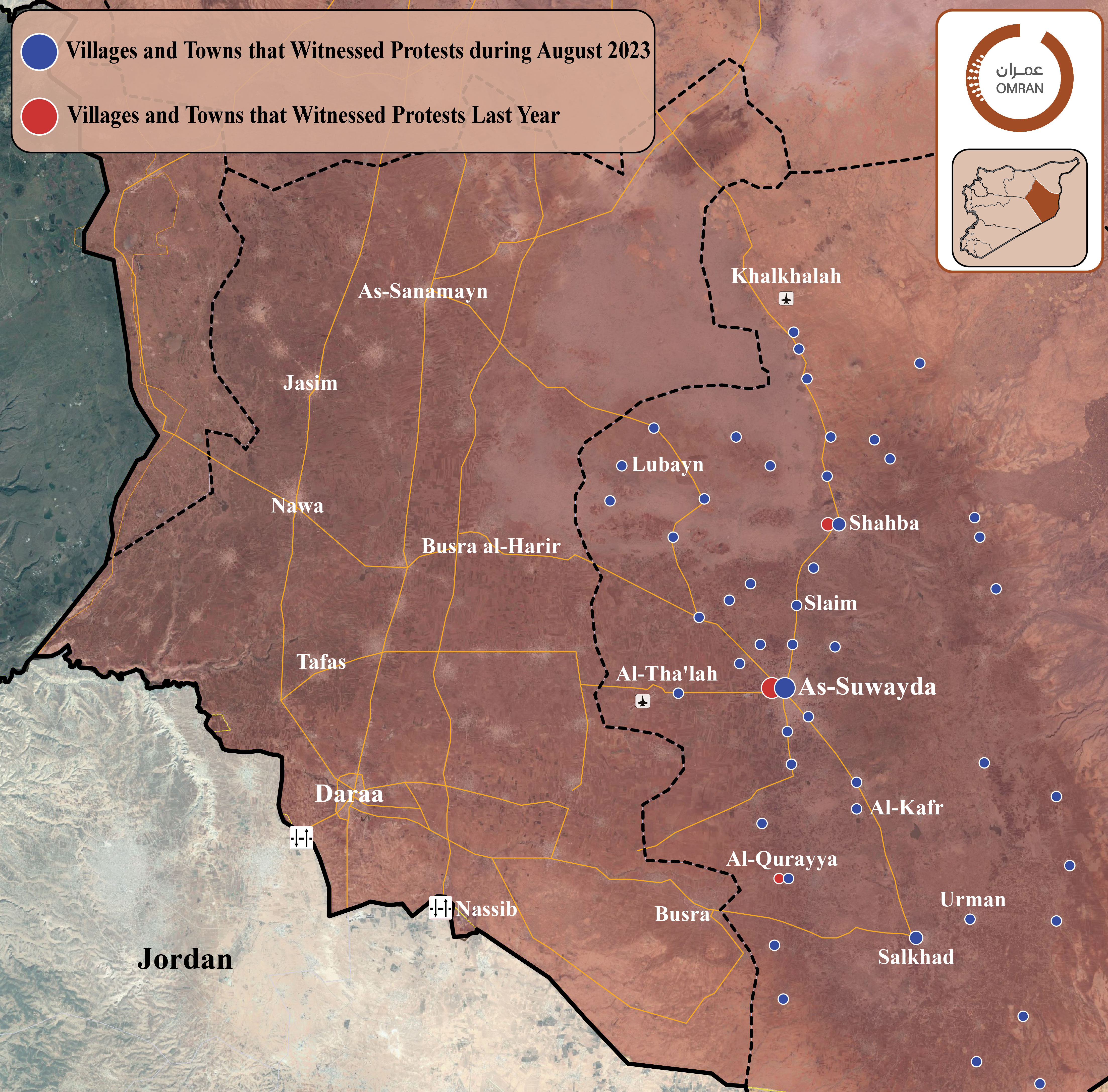
Map (1): Protest points in As-Suwayda governorate during August 2023
If the protest in as-Suwayda province evolved, we might see the Regime adapting different tactics in dealing with these protests such as, using local gangs in the city to incite violence or even assassinate key figures in the protest movement, particularly if it begins to threaten the interests of the regime and its allies, including potential disruptions to drug trafficking routes (primarily Captagon).
In August, the head of the National Coalition of Syrian “SOC” received a letter from the French Foreign Minister. The letter stated France's belief in the need for political change in Syria and their goal to hold war criminals responsible. Also in August, Bader Jamous was chosen again as the president of the Syrian Negotiations Commission for a second term.
Syria's Shifting Sands: The Impact of Recent Security and Military Events on Territorial Control
During 2023, the Regime held-areas have seen a rise in IEDs attacks aimed at the regime military's and security forces, during August 2023 two IED's attacks were recorded, one in the city of al-Moadamyeh and the other attack was at al-Quneitra province, the rise in IED attacks is a clear indication of the regime's growing weakness of its security capabilities, after becoming more reliant on untrained foreign militias on one hand, and the ongoing failure in limited ISIS cells attacks in 2023 on the other hand.
In the Opposition held-areas, in southern Idlib, specifically in the northwest region of Jabal al-Zawiya, ongoing battles have been reported between the “al-Fateh al-Mubin” opposition factions and the regime forces alongside their allied militias. The conflict escalated after the opposition took control of the “Milaja” village and other strategic points. In response, Russian warplanes-initiated airstrikes to aid the regime forces in recapturing the lost territories. The clashes over three days resulted in numerous casualties, including dozens from the regime forces and 7 opposition fighters.
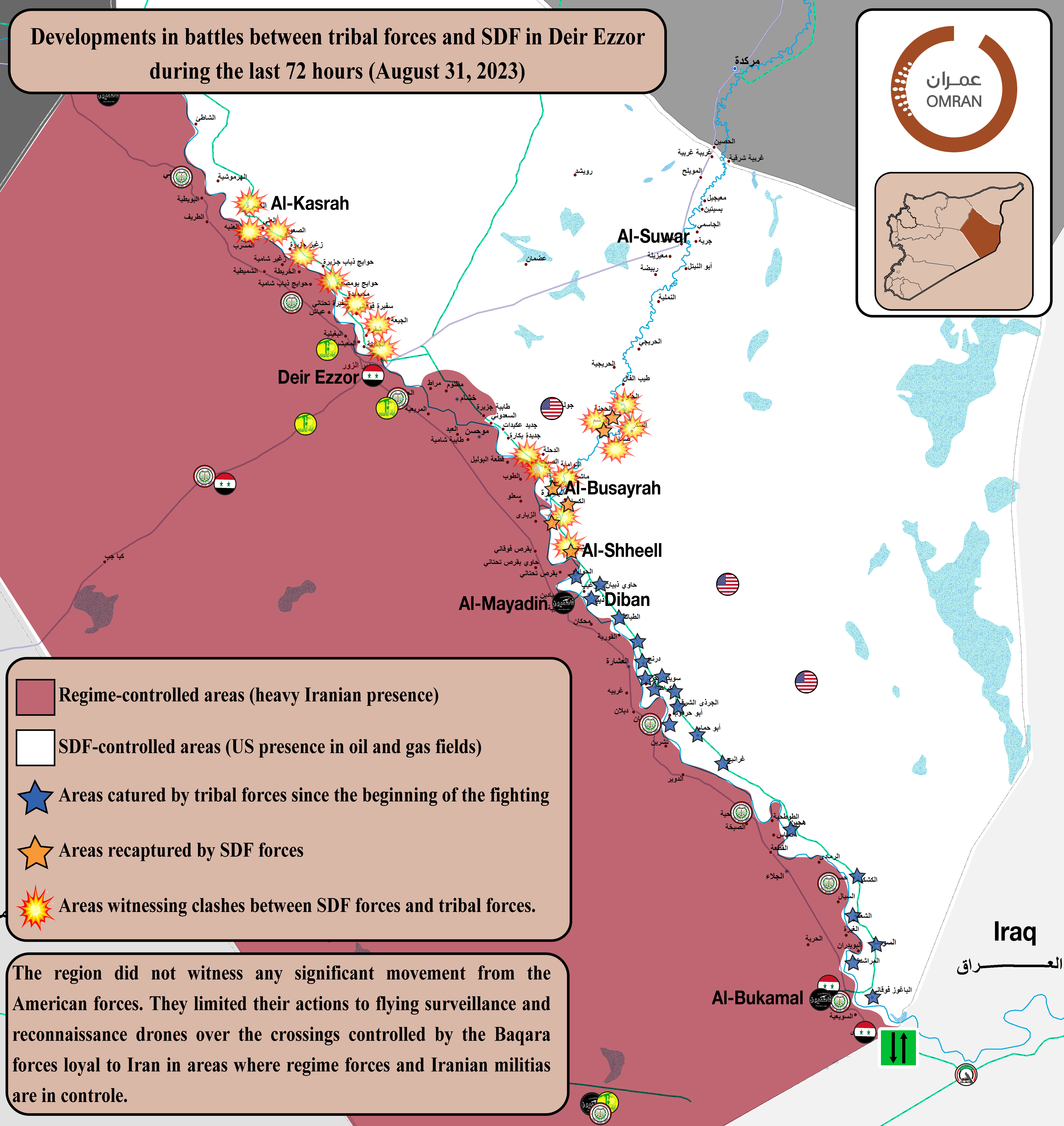
Map(2):Developments in battles between tribal forces and SDF in Deir Ezzor (August 31.2023)
In the SDF held-areas, in Deir Ezzor, tensions increased between the SDF and tribal forces following the arrest of the Deir Ezzor Military Council commander, “Ahmed al-Khabil”, and several other leaders of the council by the SDF. The situation worsened as the SDF implemented a security policy to manage the backlash, which triggered further violence. The aggressive stance of the SDF towards civilian demonstrators spurred other tribes, including al-Akidat clan, to join the fight, demanding redress for the grievances of the Deir Ezzor populace and the removal of Kurdistan Workers' Party “PKK” leaders from the region. This situation poses a significant challenge to the “Autonomous Administration of North and East Syria” project and its influence over the area.
Discontent and Migration on the Rise as Syria Grapples with Economic Crises
Regime Held-Areas
Bashar al-Assad approved a decree to double the salaries of public sector workers, both civilian and military. This was followed by a 50% bonus for certain groups. However, the regime also increased fuel prices and reduced subsidies on drinking water by up to 400%, leading to a surge in the cost of living, with the average family now needing over /10.3/ million Syrian pounds to get by, according to Qasioun newspaper. These measures, aimed at covering the salary increase, have resulted in a continuous devaluation of the Syrian pound and increased poverty.
On another note, the regime will have to import around two million tons of wheat to meet the country's needs, as the local season's won't exceed /800,000/ tons, far below the required three million tons. Meanwhile, to foster ties with Saudi Arabia, the regime granted licenses to two Saudi-owned companies to invest in Syria's phosphate, fertilizer, and cement sectors. However, Saudi Arabia has imposed restrictions on Syrian trucks entering its territory, causing delays at the Nasib crossing.
Moreover, there has been a significant increase in the migration of traders, especially from Aleppo and Damascus, with some transferring substantial gold reserves abroad, highlighting the deepening economic crisis.
SDF Held-Areas
The “Autonomous Administration of North and East Syria” has doubled the salaries of its civilian and military employees, setting the minimum wage at /1,040,000/ Syrian pounds and the maximum at /8,222,000/ Syrian pounds. They also increased the price of heating diesel and allocated /300/ liters per household for the upcoming winter.
In terms of early recovery projects, 90% of the “Ambara” road project, linking al-Qamishli city to the M4 international road, has been completed with a 2023 budget of around $/794,633/.
To regulate economic activities, two laws were enacted:
- One governing exchange and transfer operations, setting the minimum capital for exchange companies at $/500,000/ and for exchange offices at $/50,000/.
- And another regulating the trade and manufacture of precious metals, outlining licensing procedures and prohibiting unlicensed operations. The administration also approved a draft law comprising 66 articles to combat money laundering.
Opposition Held-Areas
In northwest Syria, the “Salvation Government” raised the prices of gasoline and domestic gas following a two-week shortage in its controlled areas. To foster investment, the “Syrian Interim Government” initiated discussions with local entities to organize an investment conference aimed at enhancing the investment environment in northern Syria. A memorandum of understanding was signed with various stakeholders to foster cooperation and prepare for the conference.
Meanwhile, the electricity crisis is escalating in rural Aleppo, with “Ak Energy” hiking electricity prices, sparking public outrage and protests in front of the company’s headquarters in Azaz. Local councils are considering new contracts with alternative energy providers to address the issue.
In terms of early recovery, projects are underway in rural Aleppo and Idlib, including housing projects and road expansions to improve infrastructure. Various organizations are working on these initiatives to facilitate better living conditions and connectivity in the region.

